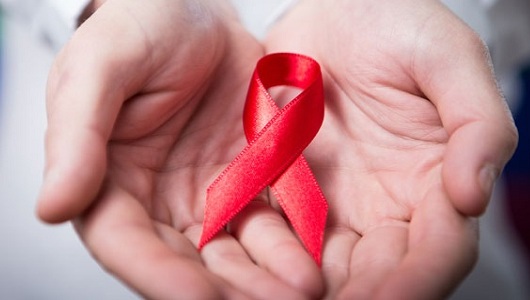While the Yogi Adityanath storm took over the internet and media, a historical bill was passed by a united Rajya Sabha. The HIV and AIDS (Prevention and Control) Bill-2014, which criminalises discrimination against HIV-positive people and those living with them, was passed in the Rajya Sabha by a voice vote on Tuesday. The bill seeks to ensure equal rights to people afflicted by HIV and AIDS in getting treatment, admission in educational institutions and jobs.
India has the third highest HIV affected population after South Africa and Nigeria in the world, accounting for an estimated a staggering 21 Lakh people. HIV/AIDS like Cancer has no cure at present. The bill was introduced in the Upper House of Parliament in 2014 and then referred to the Parliamentary Standing Committee which gave its report in 2015.Under the Bill, central and state governments are obliged to provide for anti-retroviral therapy (ART) and management of opportunistic infections i.e. infections that take advantage of weakness in the immune system and occur frequently. The bill assumes significance as it includes a “test and treat policy” which means any person testing positive for the disease will be entitled for free treatment by the state and central government. The bill also provides for the appointment of one or more ombudsman in every state, for which the central government will circulate uniform guidelines. The biggest roadblock the government faces in its dream to have an AIDS free India is that people are unwilling to admit to having HIV, fearing discrimination from the society.
The government hopes to allay such fears by including a provision in the bill which ensures confidentiality of the HIV affected person and makes it necessary to get informed consent for undertaking HIV tests, medical treatment and research.
The legislation stipulates that “no person shall be compelled to disclose his HIV status except with his informed consent, and if required, by a court order”. It also mandates organisations that maintain records on HIV-positive individuals to adopt data-protection measures to safeguard their rights. The Bill also provides for fast tracking of cases relating to HIV positive persons by courts on a priority basis. In any legal proceeding, if an HIV infected or affected person is a party, the court may pass orders that the proceedings be conducted (a) by suppressing the identity of the person, (b) in camera, and (c) to restrain any person from publishing information that discloses the identity of the applicant. When passing any order with regard to a maintenance application filed by an HIV infected or affected person, the court shall take into account the medical expenses incurred by the applicant.
The bill has its drawbacks like the section 14(1) which entitles the state and central government to provide free medical treatment to those affected by the virus “as far as possible.” The phrase “as far as possible” would provide leeway to the government. However, Health Minister JP Nadda moved to allay such fears by saying “I would like to inform the House that while making the rules, we will ensure that nobody is denied treatment and we are committed to providing medical treatment to all those living with HIV or AIDS. We are going with an aggressive policy.” He also added that there will be a provision in the rules to provide justification for denying treatment to the patients. Another worry about the impact the bill would be the allocation of funds. In case the funds provided by the government for National Aids programme prove to be insufficient, there is a risk that it would dilute the purpose of the bill. However, the government has already allocated Rs. 2,000 crore for this year alone, providing hope for the those affected with the deadly virus. The need for equal treatment to all is paramount in this case and the suggestion of raising the funds for the bill must at least be considerable for the government.
Out of 21 lakhs affected, only 25% of the affected population have got treatment in India, much less than the global average of 41%. Surprisingly, according to a HIV assessment survey, Zimbabwe of all countries is on course to meet the United Nations’ ambitious 90-90-90 to help end the HIV/AIDS pandemic by 90% in 2020. The present Indian government can surely take a leaf out of Zimbabwe’s book to achieve its target of “HIV free India” by 2030. A suggestion for allocation of funds for research to develop vaccines which can completely cure HIV will not prove to be foolhardy because as of now, India already supplies HIV/AIDS medicines to 180 countries and certainly has the research capabilities to develop vaccines which can completely cure the disease.
This bill was initially introduced by the UPA regime in 2014, but then has undergone major changes like the “test and treat” policy to name a few under the NDA government. This bill bodes well for the governments’ slogan of Sabka Saath Sabka Vikaas, providing succour to the marginalised. Both the government and the opposition deserve a pat on the back for this bill, refraining from creating any unnecessary hindrance to a bill which will go on a long way to help the infected citizens if implemented properly.r




























